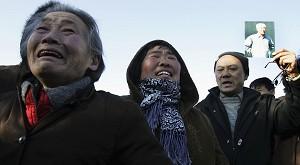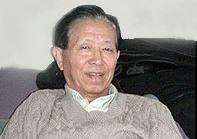BEIJING – In a landmark ruling, a Chinese court sentenced a businessman to three years in prison on Thursday for organising illegal protests after authorities seized oil wells owned by thousands of private investors.
The ruling by the Intermediate People’s Court in Jingbian county in the northwestern province of Shaanxi undermines a government pledge to protect private property, seized after the 1949 Communist revolution but which has re-emerged since the late 1970s when China began economic reforms.
Feng Bingxian, 59, was convicted of disturbing social order by organising illegal protests by several hundred disgruntled private oil investors in April and May, family members said.
“It’s a miscarriage of justice. He will definitely appeal,” Feng’s wife Qu Jianping told Reuters.
Jingbian county’s chief judge and prosecutor were both members of a government task force that went in to seize the private oil wells, she said.
“I was angry when I heard the verdict but I’m helpless ... The court ignored evidence presented by the defence,” Feng’s son Feng Yanwei said by telephone.
Security was tight around the court, with the front gate locked, the son said, adding that he was not informed of the sentencing and had to force his way in.
Two co-defendants both received two-year prison sentences suspended for three years, Feng’s wife said.
Court officials reached by telephone declined to comment.
Peaceful Protests
Feng, a former official who went into private business and invested in 13 oil wells in northern Shaanxi, appeared in court wearing an orange prison uniform. He looked frail but calm and smiled when he saw his family, his wife said.
Feng pleaded not guilty during a one-day trial last month, arguing that the protests were peaceful and that officials even took him to lunch and promised further dialogue.
About 6,000 small investors, many local farmers and former officials, bought the wells with the blessing of the government in the late 1990s, pouring in about 7 billion yuan ($867 million) as demand for energy soared.
Feng, who was caught by police in July after evading arrest for two months, invested about 10 million yuan in the wells.
In an about-face after the private investors struck oil, the provincial government seized the wells in 2003 and paid what investors said was paltry compensation.
Foreign Ministry spokesman Qin Gang defended the government, saying: “China protects the private property of its citizens and deals with such issues in accordance with the law.”
The plight of the investors was widely reported in the Chinese press before propaganda mandarins restricted coverage, and the case became the focus of a nationwide campaign for stronger protection of private investors’ rights.
Feng’s trial was postponed twice and his relatives said officials appeared nervous of press attention and protests.
One of Feng’s lawyers, Zhu Jiuhu, was detained along with Feng in July and released two months later after a campaign by human rights advocates and other lawyers. Zhu is still under criminal investigation and was unable to defend Feng.
Protests in China are becoming increasingly common -- 74,000 in 2004 compared with 58,000 in 2003 -- despite the Communist Party’s obsession with maintaining stability. The demonstrations have been sparked by public anger over a number of issues from pollution and corruption to a growing gap between rich and poor.
In December, police opened fire on residents of Dongzhou village in the southern province of Guangdong protesting against a lack of compensation for land appropriated for a new power plant. The government says three villagers were killed, though local estimates of the death toll were as high as 70.
China gave a clear nod to the private sector in March 2005 by enshrining in its constitution theories that effectively opened the doors of the Communist Party to private entrepreneurs, who were vilified in the ideologically strict era of Mao Zedong as “capitalist running dogs”.
With additional reporting by The Epoch Times



Friends Read Free